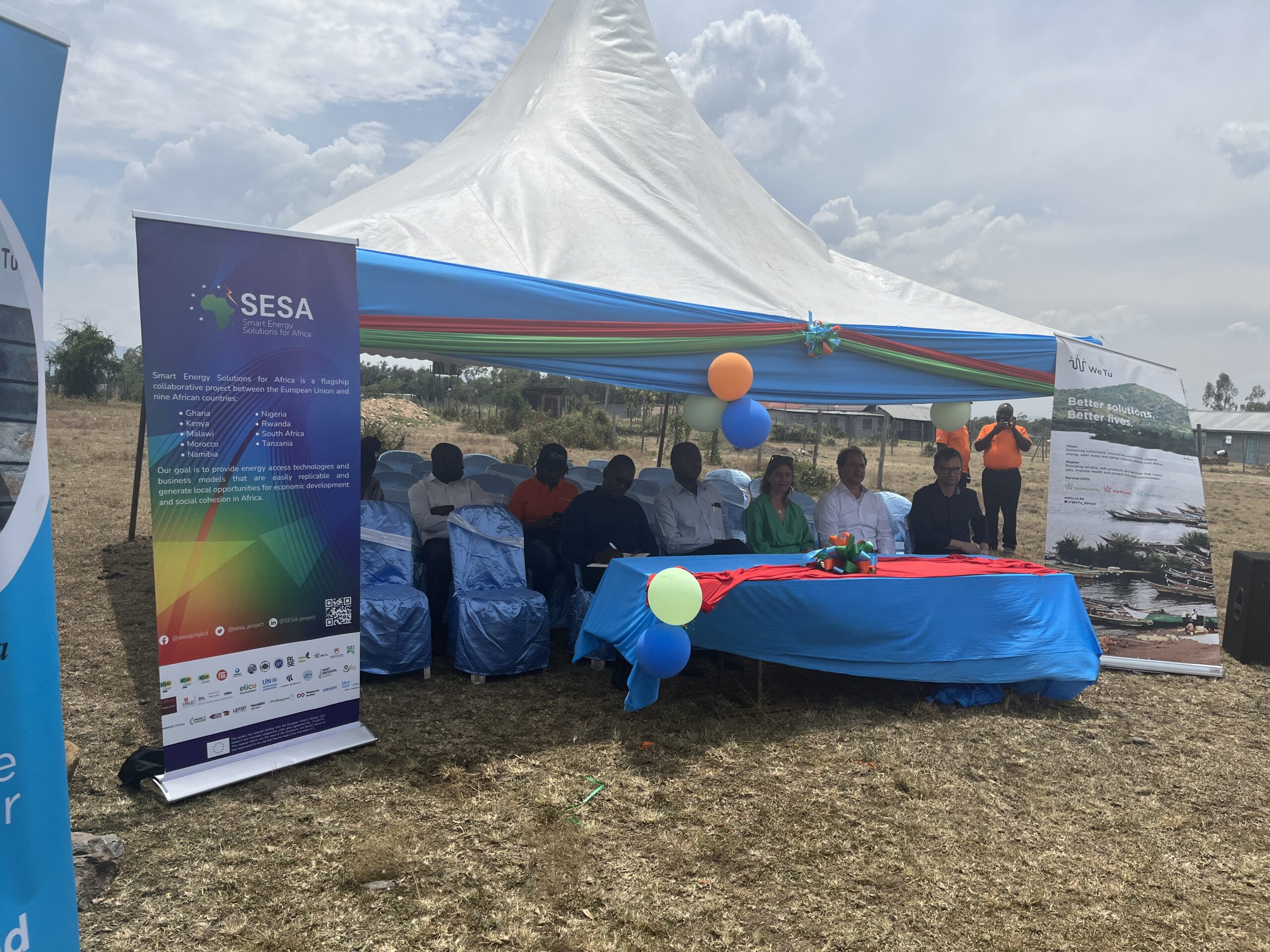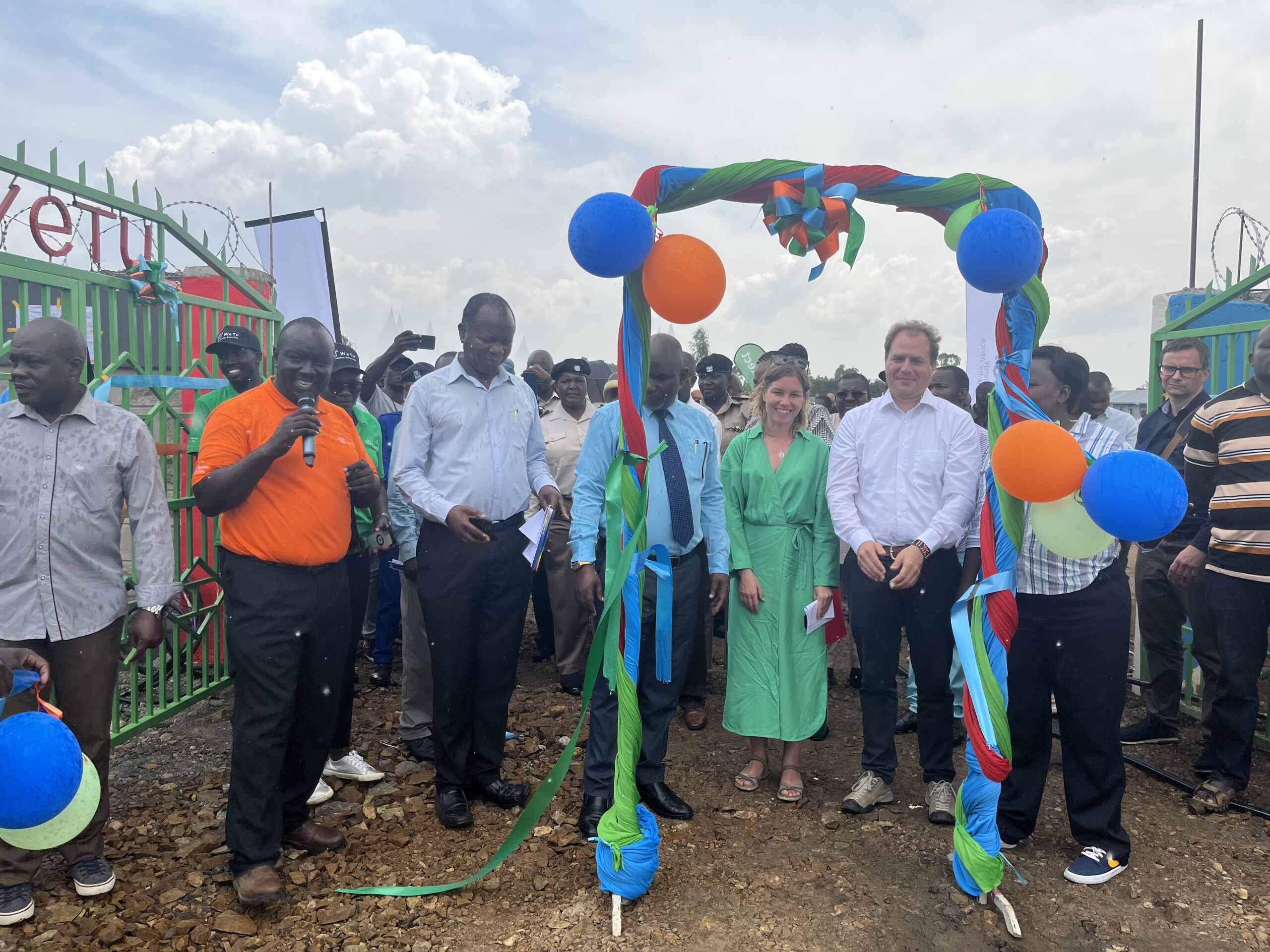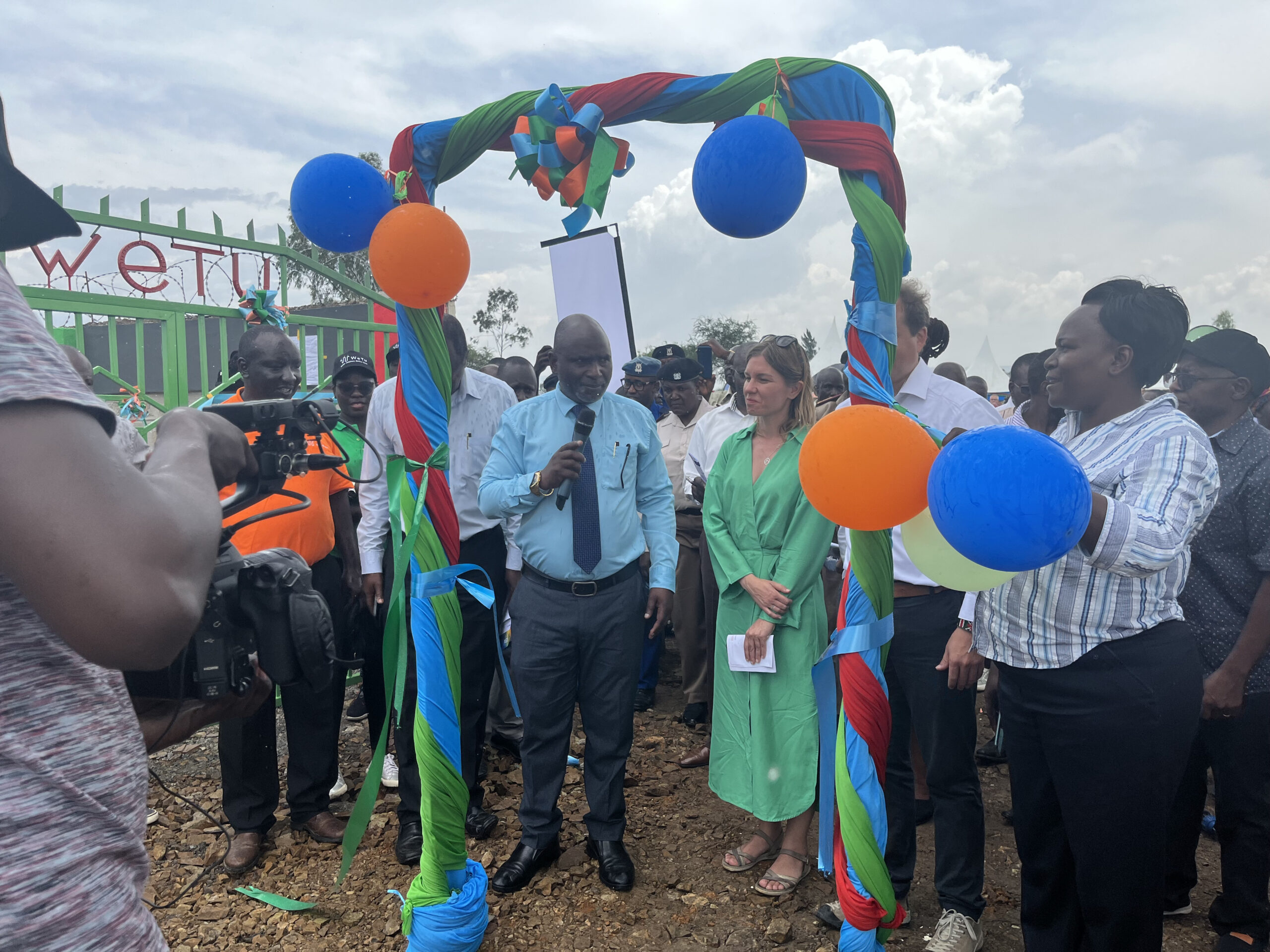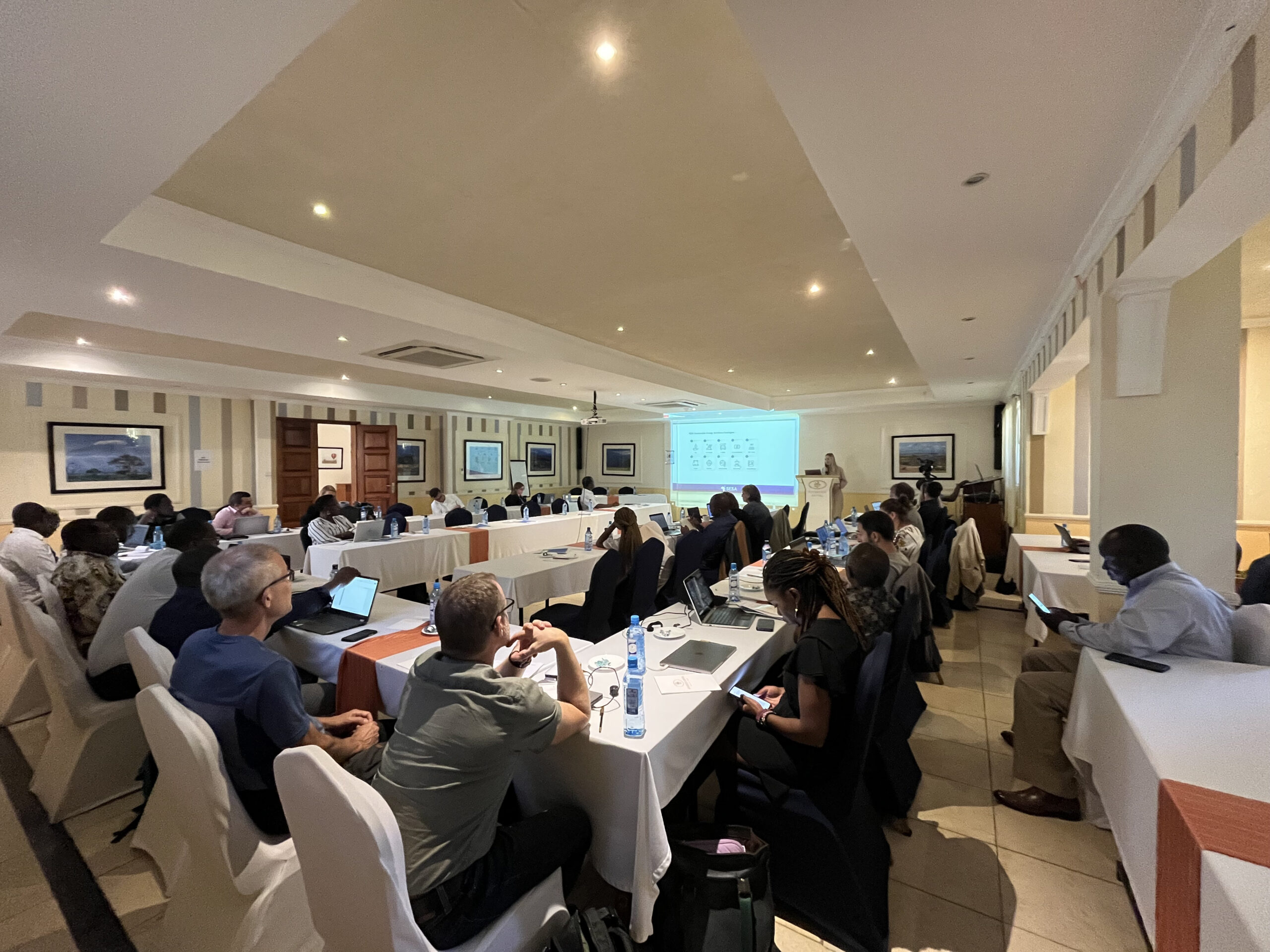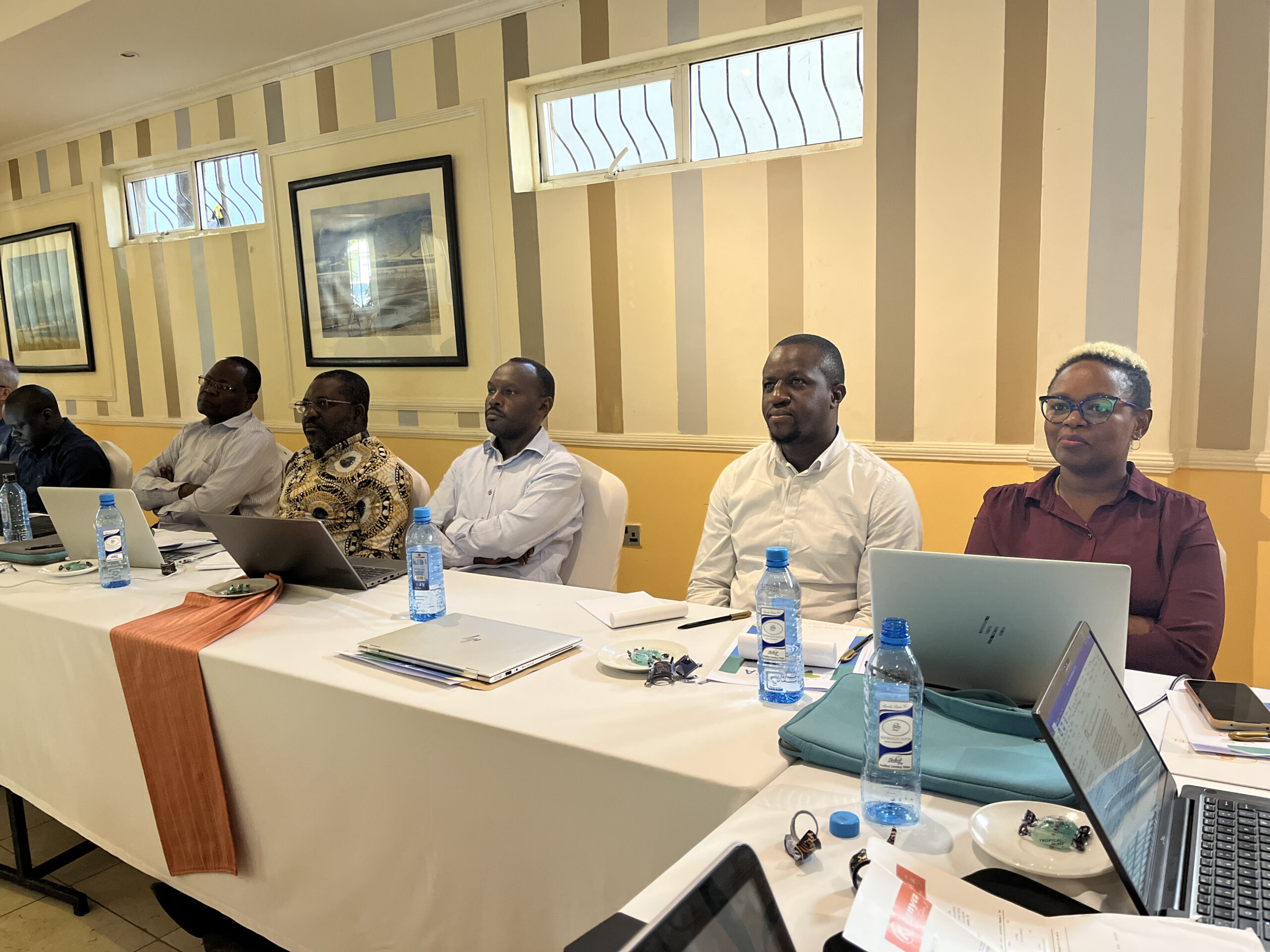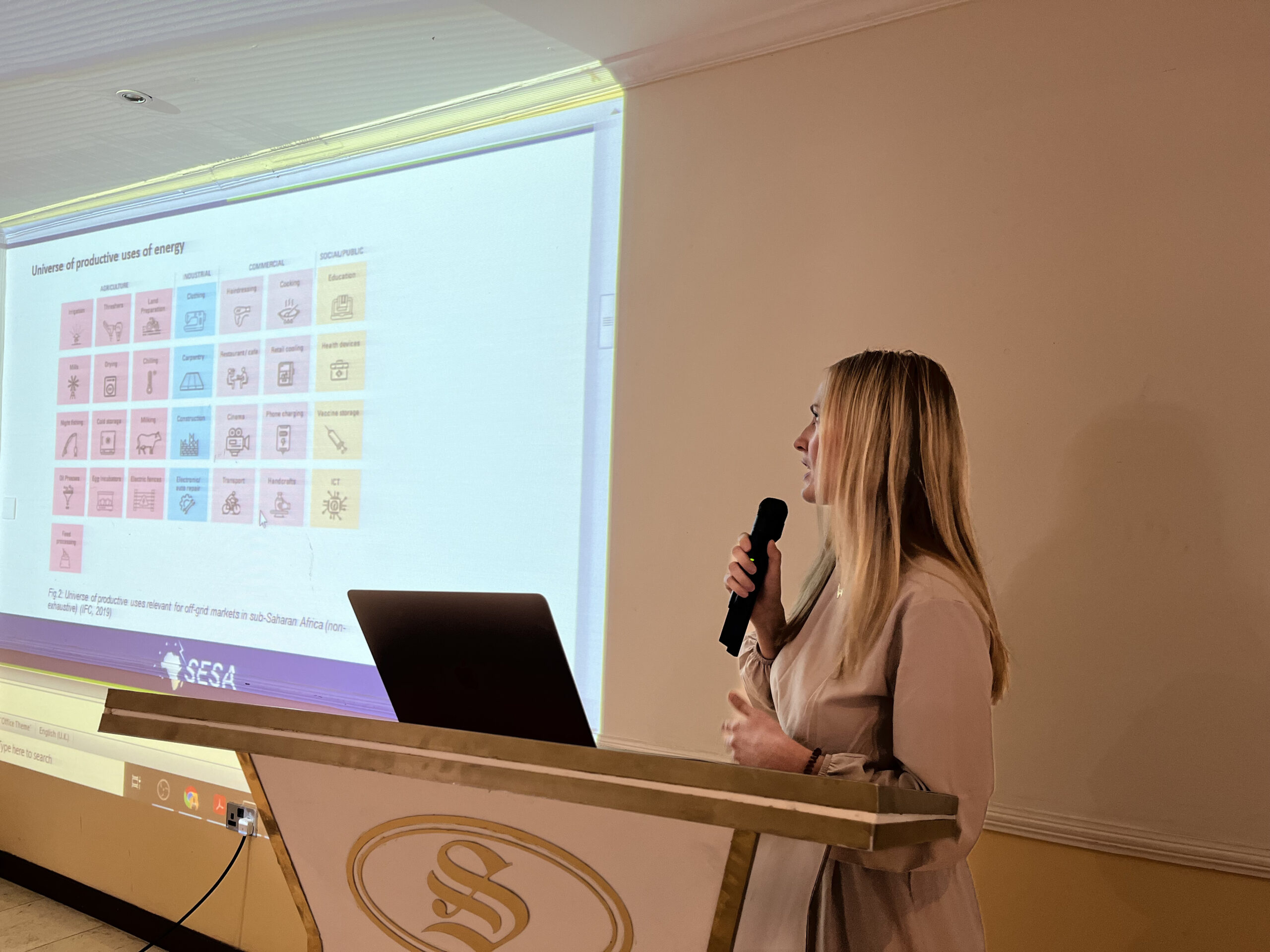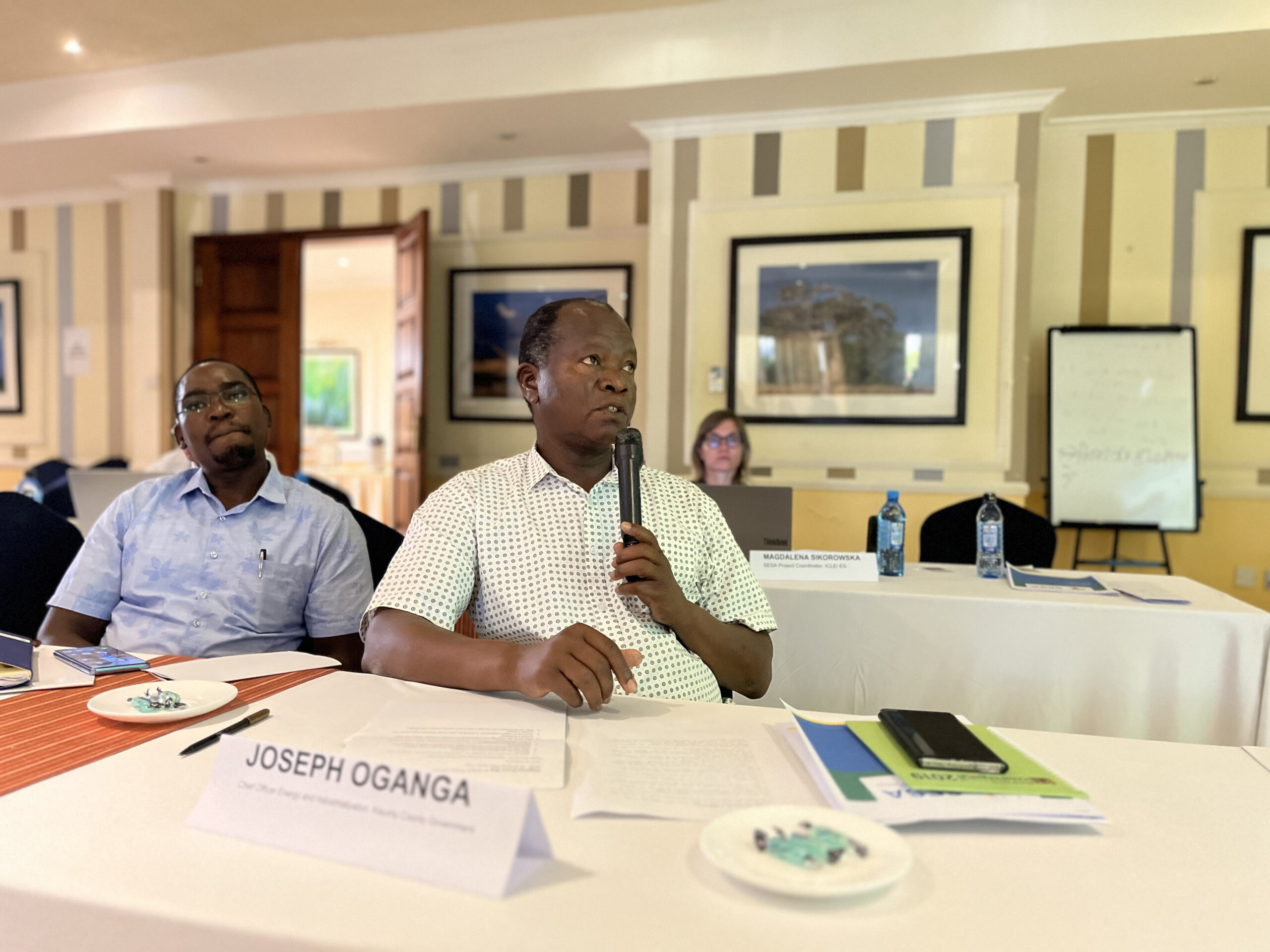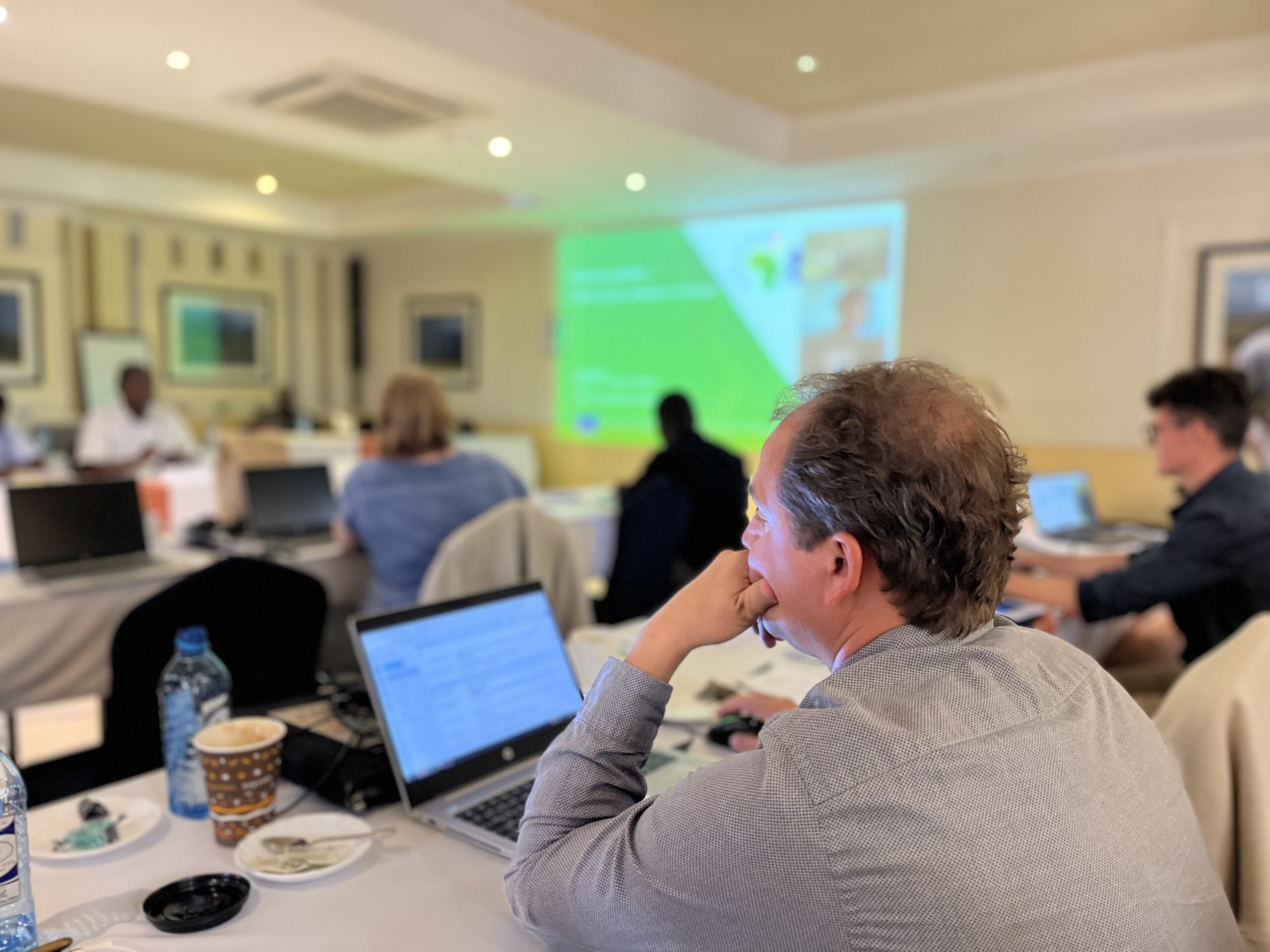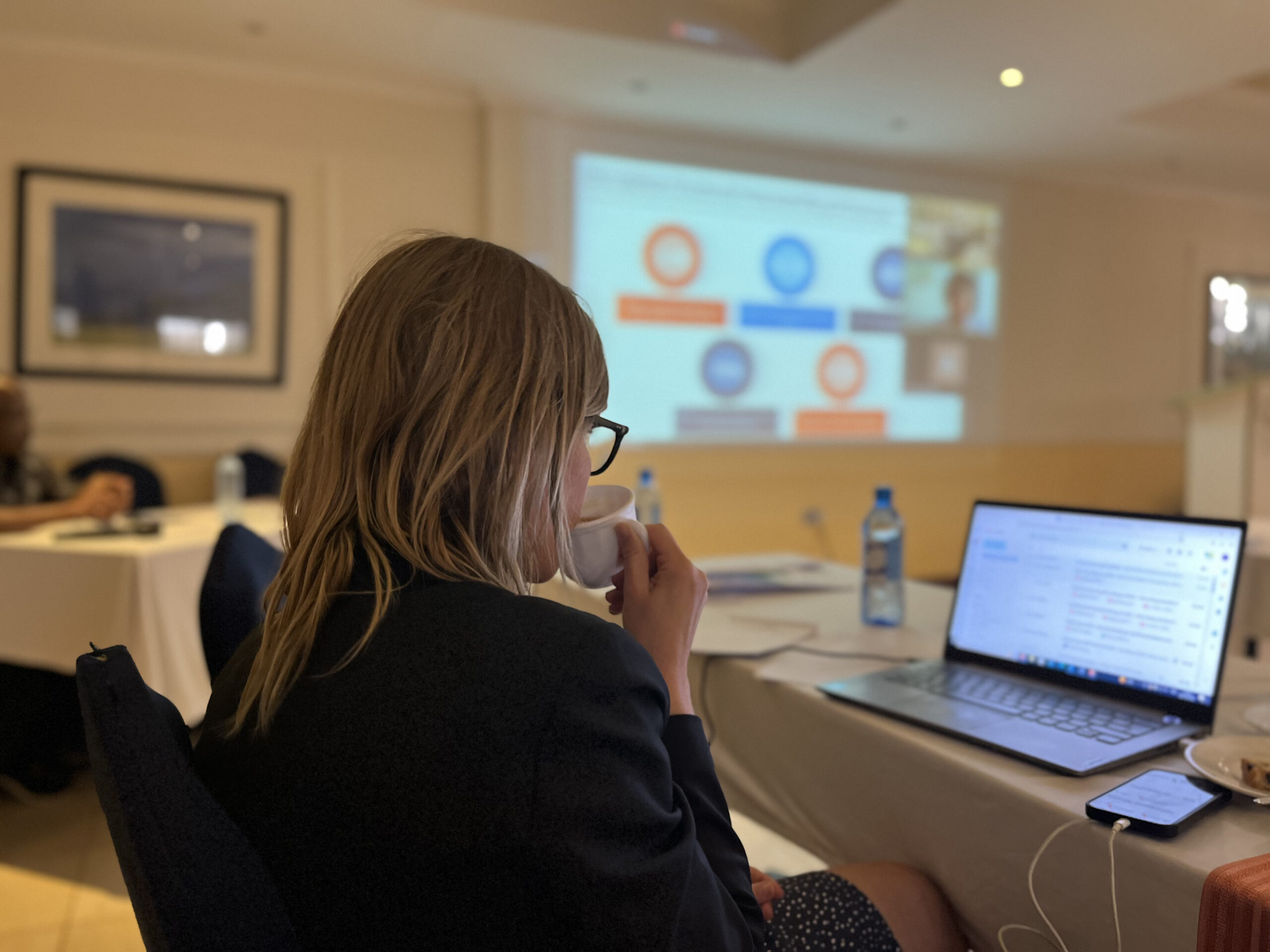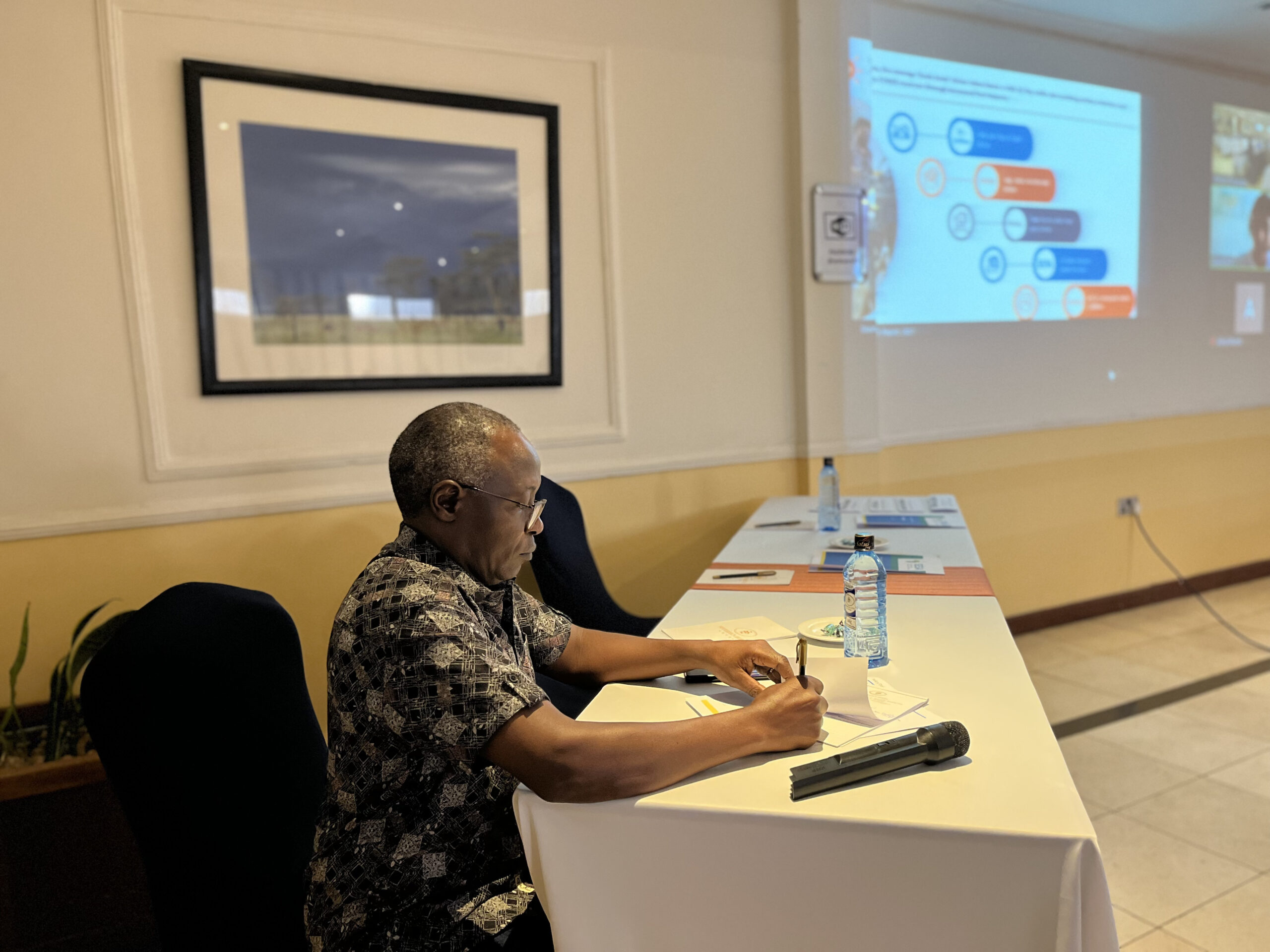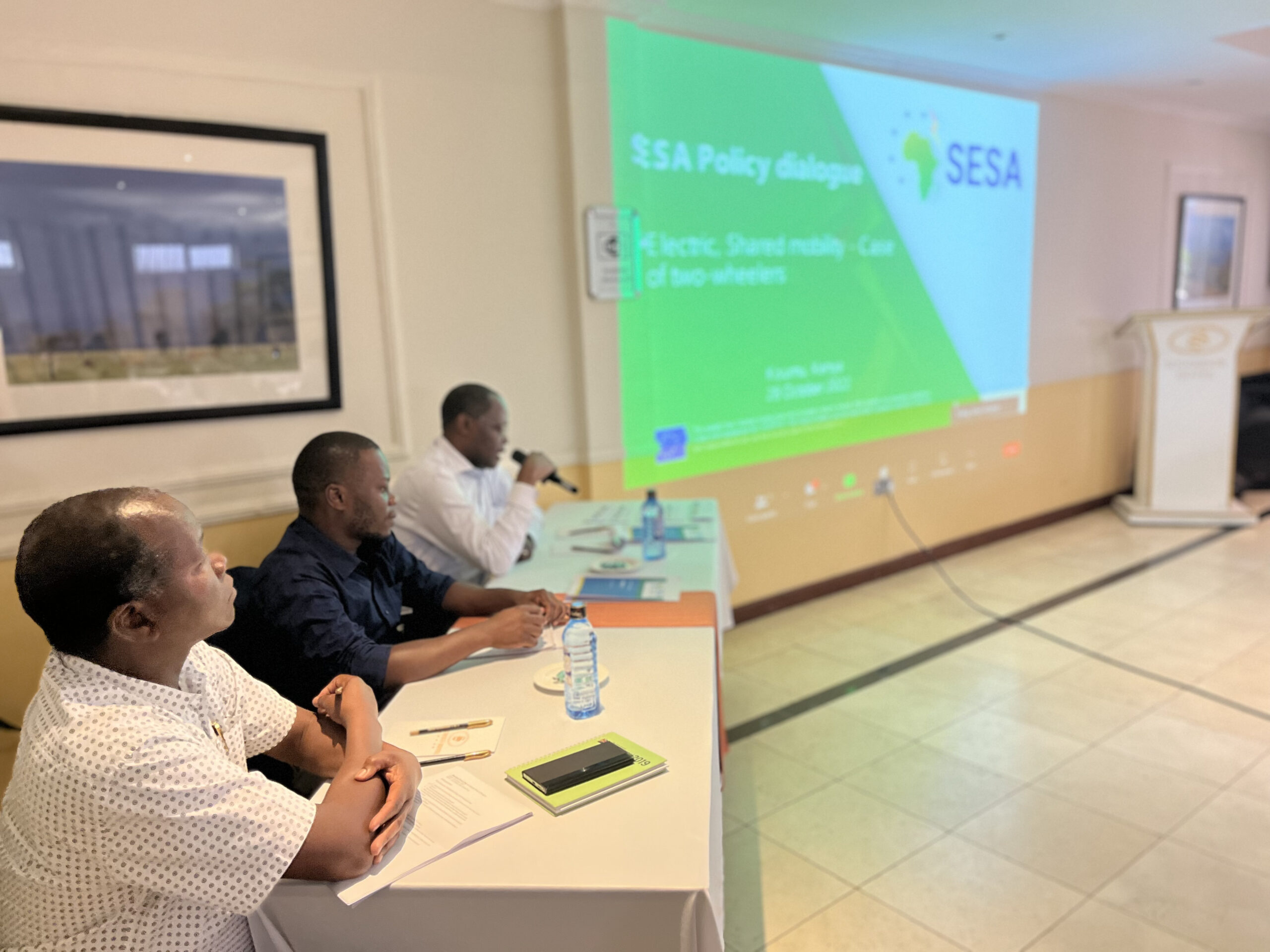The past 25-28 October, 2022 the SESA consortium hosted its first General Assembly and Regional Event.
The visit took place in Nairobi and Kisumu (Kenya) and gathered 46 representatives from the organisations part of the initiative. The activities were divided into three main events: The General Assembly which took place from 25-26 October in Nairobi, where partners got together in person for the first time to share achieved milestones, engage in collaborative work and define next steps for the project. The first Regional event took place from 27-28 October in Kisumu, involving the launch of the Kenya Living Lab in Katito, and finally, on the last day the Kenya Policy Dialogue addressing the topics of electric mobility and productive use of solar power.
SESA First general assembly
The first session started with a welcome speech form SESA’s project coordinator, Magdalena Sikorowska, from ICLEI Europe. Addressed to partners attending onsite and online the coordinator described the agenda for the different activities and provided a general overview of the project main achievements for the first twelve months of the project.
The main topic to be discussed revolved around the understanding of the local context related to each of the living labs, the goals SESA aims to achieve in this deployment phase, the correct way to measure the Key performance indicators and setting a start point for the data collection coming from the project’s results.
After the introduction, each work package leader gave a resume of the actions, activities and milestones reached so far. The first work package, Toolbox and evaluation, led by Cenex Netherlands, provided a description of the subtasks regarding the SESA toolbox, which is in progress and in a phase of identification of the contents, review process and official approval before uploading to the platform. Furthermore, the corresponding InfoSpots implementation is underway. The leaders made a call for all the work packages to develop and contribute to the contents.
For the second work package, Capacity building, city-to-city cooperation, and professional development, led by ICLEI Africa, some doubts and questions were raised regarding the capacity building tasks, during the breakout sessions programmed during the assembly more detailed discussions around the topics were clarified. Regarding the third work package: Technical and business partnerships, models and implementation plans, led by Smart Innovation Norway, the discussion around business models and plans was focused around the specific support needed for technical solutions/technology for the living labs, and encouraged the participants to share among their networks the Call for Entrepreneurs.
For the fourth work package, Comparative demonstration and replication actions, led by Blekinge Institute of Technology, questions around the technical support were raised. The discussion surrounding the proposal for the country theme for the upcoming replication call, and updates on the implementation plans and set up of regional platforms, and the living documents around the demonstration sites.
Regarding the fifth work package, Scale-up, bankability, commercialisation, and institutionalisation, led by Technische Universitat Berlin, raised some questions regarding policy dialogues, processes and suggestions. For the sixth work package: Exploitation and Dissemination, led by F6S, updates on the dissemination and communication strategy and deployment were shared with the consortium, updates on specific KPIs and gathering questions for the workshop on how to effectively communicate with SESA’s stakeholders were gathered.
For the seventh, eighth and ninth work packages, Project coordination and management, ethics and ethics requirements, the coordination shared general updates and introduced the following discussion around the living labs.
The SESA Living Labs
For the discussion around the first batch of living labs the different local leaders of the sites shared the challenges identified and lessons learned so far.
For the Kenya Living Lab, the main outcomes were local labour employment and skill transfer,investment in training required to close knowledge gaps at the local level, use of prefabricated structures, the importance of site identification and due diligence cannot be overstated, supplier and vendor due diligence, community awareness and participation, and advocacy and interaction with local governments.
For the Ghana Living Lab, the main updates are planning for face-to-face workshops at regional centres, the expected academic outcomes from sustainable energy to develop and promote, and sharing of the open platform to share capacity building resources.
For the Malawi Living Lab, the latest updates are the testing of the cooking solution and biomass testing for this. The local team emphasised the importance of the development of their cost-effective biomass cooking solution, and the benefits in improving indoor air quality, recovery of nutrients by producing secondary bio.products, and supporting local entrepreneurs and community.
For the Morocco Living Lab, the updates shared focused on the identification of stakeholders, planning and deployment of capacity building actions, the ongoing discussion on innovative business models development with the Urban demonstration team, and the definition of the site for the solution to be deployed.
For the South Africa Living Lab, the conversation and state of the activities was focused on the implementation guidelines for the living lab, potential business models, training for stakeholders with regional training and innovation centres established, and CO2 mitigation potential of the solution.
The outcomes of this session were discussed in depth in a workshop session that took place the second day of the assembly where each of the partners involved in the implementation of the living labs defined KPIs, objectives and next steps.
Working sessions
The second day of the General Assembly was focused on two main workshops. From KPIs to data collection: How to efficiently and clearly work together? Where each of the Living Lab teams spend some time defining and clarifying objectives and next steps to bring the expected results from the sites to completion.
Afterwards, the session How to effectively use online channels to engage with SESA’s stakeholders focused mainly on SESA’s communication strategy, best practices were discussed and the consortium got the chance to explain needs and requirements for the upcoming months.
Kenya Living Lab Launch and Peer to Peer Exchange
On the third day, the consortium travelled to Kisumu (Kenya) for the Launch of the Living Lab in Katito implemented by consortium organisation WeTu. WeTu aims to deliver sustainable and innovative solutions for clean energy, safe water and better mobility across rural Kenya.
The event started with a visit from the consortium members to the site, where the team got to know the installations and chat with the members on site.
The official launch started with the official welcome to Katito by the Chief of the local area, then an introduction of the Living Lab by Tilmann Straub, WeTu Director, followed by the speech of the Governor of Kisumu County, Prof. Nyong’o. To finalise, SESA Coordinator Magdalena Sikorowska addressed the attendees, which included members of the community as well as the SESA team.
First SESA Policy Dialogue
The last day, the first regional event took place at the Sovereign Hotel in Kisumu. The Kenya policy dialogue is the first of the 5 policy dialogues (4 in Africa + 1 in Europe back to back with the SESA final event), planned for the project.
The discussion focused on two main topics: Energy and Transport policy landscape in Kenya. The introduction of the productive use of solar was in charge of Madeleine Raabe, form Wuppertal Institute, followed by a panel discussion about Renewable energy and productive use, where the invites got the chance to provide an overview of the policies current state and how the SESA project could contribute to move forward.
The panel was attended by Ephren Ouma, Director Petroleum and Electricity, Kisumu CountyGovernment; Joseph Oganga, Chief Officer Energy and Industrialization, Kisumu County Government; Josephine Osengo, Communication Specialist, Practical Action and Kiragwe Mugwe, Sr. Energy Engineer, European Investment Bank.
For the second half, the introduction to the topic of Electric, Shared mobility – Case of two-wheelers was in charge of Lakshmi Bhamidipati, Advisor – Energy and Climate at UNEP. Followed by a panel discussion on e-mobility moderated by Charles Wagura, UN-Habitat; and attended by Martin Eshiwani, Head of Unit, Road Transport Services, Ministry of Transport and Infrastructure; Joseph Oganga, Chief Officer Energy and Industrialization, Kisumu County Government and Stephen Omondi WE!Hub Victoria Limited.
The outcomes from the sessions will contribute to the setting up of future policy recommendations on behalf of the SESA consortium. Overall, the General Assembly proved to be a much needed event for partners and community, where the interactions between the project and onsite stakeholders were fruitful and provided a clearer understanding on the needs and next steps to be taken by the project.



